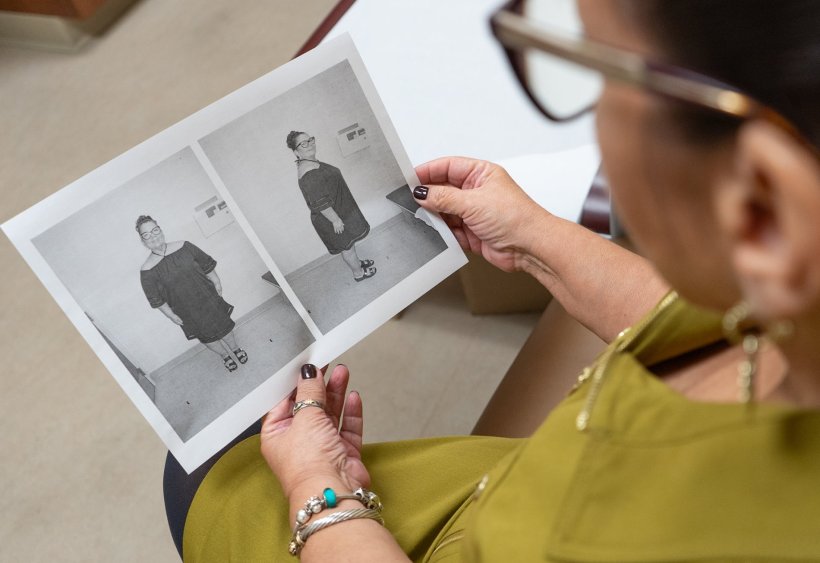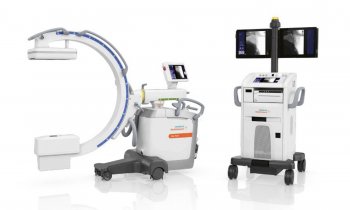
Image source: Orlando Health
News • Survey reveals alarming misconceptions
Bariatric surgery: shortcut to weight loss or last resort?
Experts stress the need for surgery to improve obesity-related health issues and help patients improve their lives
More than two in five U.S. adults suffer from obesity, an epidemic that continues to trend upward. While bariatric surgery is an extremely effective treatment option, a new national survey by Orlando Health reveals common stigmas that may deter those who qualify for surgery from pursuing the treatment they need.
“Treatment plans for obesity are tailored to each individual patient based on things like body mass index and existing medical conditions and may include medication, lifestyle changes, counseling and bariatric surgery,” said Andre Teixeira, MD, medical director and bariatric surgeon at Orlando Health Weight Loss and Bariatric Surgery Institute. “By taking this personalized approach, we are extremely successful in reversing health issues caused by obesity, from diabetes to heart disease. But if someone’s decision is affected by those who think they don’t need surgery or that make them feel like a failure if they have surgery, that greatly diminishes their chances of losing weight and maintaining a healthy lifestyle long term.”
Because of the stigma around obesity and bariatric surgery, so many of my patients feel defeated if they can’t lose weight on their own
Muhammad Ghanem
The survey, conducted by Ipsos, found 79% of Americans believe weight loss surgery should only be pursued as a last resort, and 60% agree that bariatric surgery is a shortcut to shedding pounds, something Dr. Teixeira says couldn’t be further from the truth. “Bariatric surgery is by no means an easy way out. If you have the courage to ask for help and commit to doing the hard work of changing your diet and improving your life, you’re a champion in my book.” Dr. Teixeira said. “Surgery is simply a tool to jumpstart that change. After surgery, it is up to the patient to learn how to eat well, implement exercise into their routine and shift their mindset to maintain their health for the rest of their lives.”
Guidelines by the American Society of Metabolic and Bariatric Surgery (ASMBS) and International Federation for the Surgery of Obesity and Metabolic Disorders (IFSO) were recently updated for the first time since 1991 to expand access to bariatric surgery, which is less invasive and safer than ever, thanks to advancements in laparoscopic and robotic surgery techniques. Yet only 1% of those who are clinically eligible undergo surgical treatment for obesity.
The survey also found that 61% of respondents believe exercise and diet should be enough. “Because of the stigma around obesity and bariatric surgery, so many of my patients feel defeated if they can’t lose weight on their own,” said Muhammad Ghanem, MD, a bariatric surgeon at Orlando Health Weight Loss and Bariatric Surgery Institute. “But when I tell them obesity is a disease and that many of its causes are outside of their control, you can see their relief. They often even shed a tear because they’ve struggled with their weight all their lives and finally have some validation.”
That was the case for Maritza Cruz Rivera, 64, who lived with pain and fatigue for years and finally hit a breaking point during a routine visit to her primary care physician. “When they weighed me before my appointment, I looked at the scale and started to cry. There it was: 227,” Cruz Rivera said. “Something triggered in me in that moment to finally do something about my weight and get some help.”
Upon learning that bariatric surgery was a good option for her, she spoke with friends and family. While many supported her decision to undergo surgery, she also heard a lot of misconceptions. She says it’s best to get the facts from your doctor and make a decision based on what is best for your health.
Following surgery, Cruz Rivera changed her relationship with food and began prepping healthy salads and soups that she enjoys. A year later, she is at a healthy weight and is living the life she’s always strived to live, riding her bicycle with her grandchildren, going for long walks in her neighborhood and even doing one of her favorite things: dancing. “I haven’t been able to dance like this in 20 years. I didn’t go into this to look like Barbie, I just wanted to live a healthy life with my family, and now I can do that,” Cruz Rivera said. “For anyone struggling with obesity who feels depressed or stuck like I did, don’t bury yourself in that dark hole. Understand and know that there’s always a solution.”
Source: Orlando Health
13.01.2024










